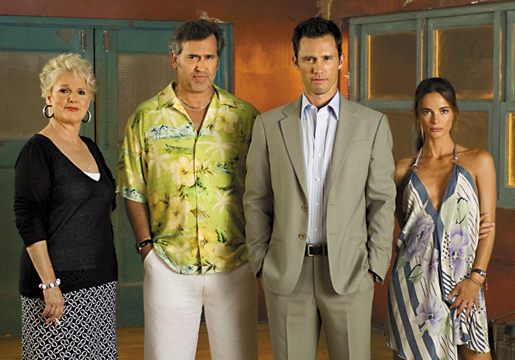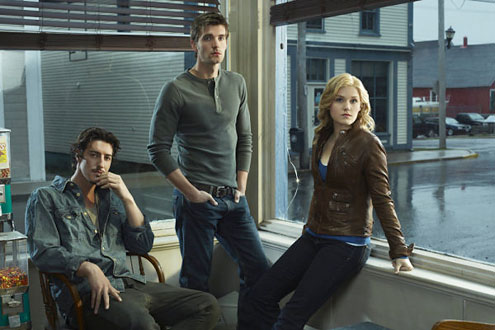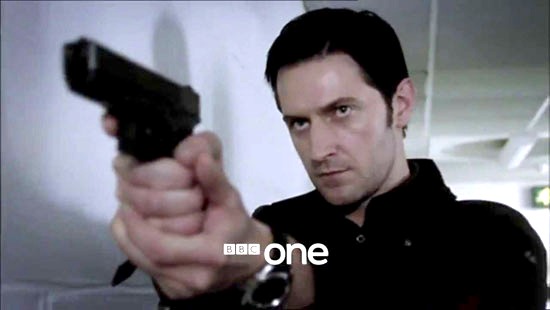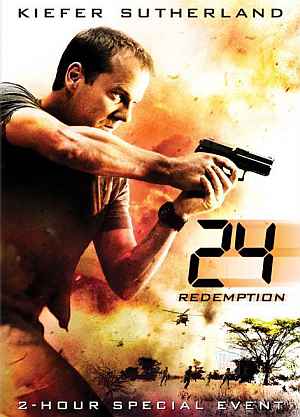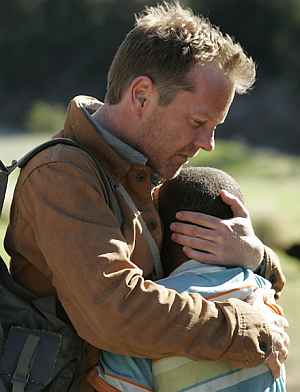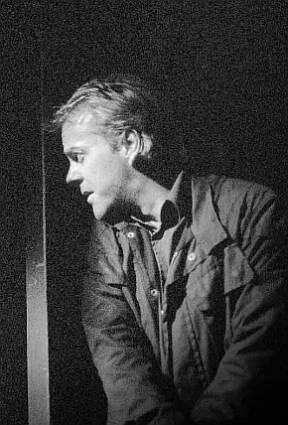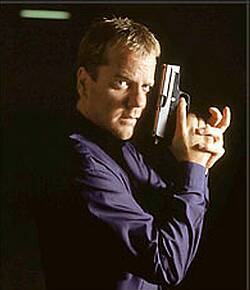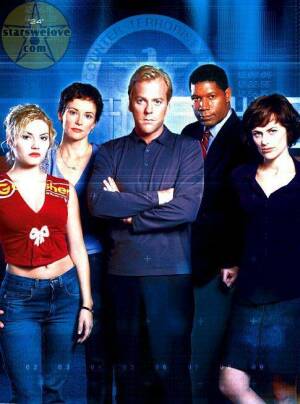TV Dinners: The Best TV of 2010
It may be tied to the decline in our cinema-going, but we’re watching more TV at this point that any time I can remember. There have been occasions recently when our living-room Tivo has been unable to cope with the scheduling, as we try and record three programmes simultaneously – fortunately, there is also the bedroom DVR which can be used as a back-up. After jump, you’ll find the ten shows which have entertained us most reliably this year – unlike our 2008 listing, we’re just going in alphabetical order this time.
Note: there’s a couple of new shows in the fall season, Nikita and The Event, that have potential, but we haven’t seen enough episodes to be sure. They’ll qualify for next year’s listing (if I do one…).
Burn Notice (right). Now in its fourth season, it took a little while for the series to gain a hold – we might not have bothered, except for the presence of Bruce Campbell as a supporting character (we’ll cut anything with him in it some slack). Its tale of disenfranchised spy Michael Weston, stuck in Miami, didn’t initially seem to have much potential, and it wasn’t until the second season that the four central characters began to take hold. While largely a bunch of misfits, they are now gelling, and the stories are peppered with little nuggets of spycraft, explaining the tactics and procedures being used. The scripts do a good job of combining single-episode stories with the over-riding arc, but it’s the characters that make this addictive.
Caprica. I never watched Battlestar Galactica, so the prequel aspect of this show for that is entirely lost on me, yet that doesn’t impact my appreciation of the imagination on view. What I like is the all-encompassing nature of the universe it depicts, with some thought having gone into every aspect of the alien world from sports to gods – it’s recognizably humanoid, yet distinctly non-human. It does a good job of blending politics and religion, with the “terrorists” beliefs closer to those of Western civilization than those against whom they are fighting. Add in ruminations on what it means to be human, and this is more thought-provoking than I expected it to be. Of course, SyFy cancelled it this week. Bastards.
Dexter. Ok, we may not have liked Dexter’s wife Rita all that much, finding her increasingly whiny and controlling. That said, the end of season four packed an enormous wallop, and the ramifications of that shock are rumbling through the new series, with Dexter having to come to terms with several new roles as a father and mentor. Hall’s performance continues to help take a character who should, by all “normal” standards, be a villain and turn him into someone with whom the audience can sympathize, even as he does things far beyond the pale of acceptable behaviour. Inevitably, claims of copycat killers have already begun to surface…
Doctor Who. The news of the departure of David Tennant from the show was greeted with dismay in TC Towers. Who could ever replace, arguably, the finest Doctor ever? And replacement, Matt Smith, was only 26, barely an adult. Tennant signed off at the very start of 2010, in a heartrending episode, as his Doctor had the chance to say farewell before bowing out; we caught Smith’s debut when we were in Scotland in April and… Well, initially he seemed a bit of a young clone of Tennant, but as the series developed, he brought more of himself to the role. The results proved acceptable, even to hardened sceptics like ourselves, and occasionally magnificent, as in Vincent and the Doctor. Smith? He’ll do.
Fringe. Now into its third series and developing nicely, alternating episodes between the two worlds, with FBI agent Olivia Dunham now trapped on the other side, “infected” with the memories of the self from there, while said other Olivia operates undercover on our side. This duality gives most of the other cast members a similar chance to stretch out a bit, playing two versions of the same character; most notably, Walter Bishop (John Noble), whose alter ego is radically different from the gentle, confused genius we’ve grown to love. Quite some way from the X-Files clone it initially appeared to be.
Haven (left). And similarly, this show has come quite some way from the Fringe clone it initially appeared to be. FBI agent, with a black boss, investigating interconnected paranormal occurrences known as the Pattern, sorry, Troubles? Hmm. Fortunately, the series has found its own path, with Audrey Parker trying to penetrate a close-knit community, and discover the truth about her own past as well. To be honest, perhaps too similar to SciFi, sorry, SyFy shows Eureka and Warehouse 13, but we don’t watch those, so who cares? Certainly, the last scene in the final ep wins “Rug-puller of 2010”, leaving us going, “Whaaaaat?”
The IT Crowd. Creator Graham Linehan has brought much the same quirky, slightly surreal quality to this show about “freaks and geeks,” as he did to Father Ted. But as someone who works in tech support, I can particularly relate [“Have you tried turning it off and on again,” is genuinely how we start troubleshooting customer’s server issues, though we usually put it in terms like, “Have you executed a power cycle?”]. At its best, the show has the same sense of delirious, snowballing chaos as Fawlty Towers, where the best intentions spiral off into unintended consequence
Modern Family. It’ll be ten years come Thanksgiving I’ve been out here, and I finally found an American sitcom that is actually enjoyable. Seinfeld, Friends, Arrrested Development, It’s Always Sunny in Philadelphia? All left me stone-cold. But the comedy here flows naturally from the characters, who are the disparate bunch of dysfunctional individuals that you find in any…well, modern family. If you can’t find someone in this show that’s a carbon-copy of someone you know, check your pulse. And no longer will Ty Burrell just be, “that jackass from the Dawn of the Dead remake.”
Spooks. PBS have been showing all the episodes (here known as Mi-5, presumably to avoid confusion with Ghost Hunters International), from its beginning, and we’ve grown totally hooked, to the point where “unofficial sources” have been used to obtain the latest series. It’s like 24 on crack, condensing an entire terrorist incident into a single hour, rather than over six months episodes. And having now also condensed so many series into a year, the high fatality rate for which the show is justly famous, makes it seem the average life-expectancy of an MI-5 operative is about four weeks. But who’d win if Adam Carter (below) and Jack Bauer had a fight?
24. And speaking of whom, we bid a fond farewell to Bauer, who finally exited our television screen approaching nine marvellous years after his first “Dammit!” We had our up and downs, didn’t we, Jack, and it’s probably right that the show departed, rather than lumbering on until Special Agent Bauer was pushing himself gamely about on a Zimmer frame. The final series was as solid as ever, with the usual mix of terrorists, slimy politicians, betrayals, Chloe’s furrowed brow and Jack’s not-so veiled threats. There’ll be a gap in our lives next winter that will be hard for any other show to fill.
